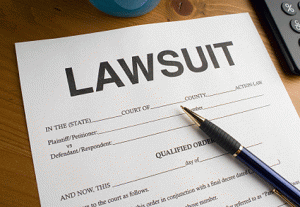Class actions are mass tort lawsuits that allow for a large number of people with a common interest to file a lawsuit as a group. The purpose is to make justice more expedient and less costly for involved parties and to make it possible for claims to be heard that would otherwise not be worth litigating. 
While class actions can have many benefits for plaintiffs, there are also some risks associated with joining a class action. An experienced San Diego class action lawyer at Sepahi Law Group can help you to understand what a class action is and whether this is the right approach to take to resolve your legal issue. Call today to schedule a consultation and learn more.
What is a Class Action?
Class actions are civil court procedures. In a class action, one party or one group of parties sues as representatives of a larger group of people. The group of people is the class.
The parties who are interested in serving as representatives of the larger class must ask the court to certify or permit the class action. Once the court agrees to certify the class, potential members must be given notice of the pending litigation and given the opportunity to exclude themselves from the legal proceedings. Class members who are part of the group of plaintiffs who are represented will be bound by the judgment in the class action. Those who exclude themselves from the proceeding will not be bound by the judgment and will retain their right to bring their own legal claims.
Class actions heard in federal court must be certified according to the provisions set forth in Rule 23 of the Federal Rules of Civil Procedure. There are three primary types of class actions permitted under Rule 23:
- Class actions that exist because separate lawsuits would adversely affect a defendant or adversely affect other plaintiffs with similar claims. For example, if a defendant would be subject to inconsistent standards of conduct as a result of multiple lawsuits or if multiple lawsuits would impair potential class members from protecting their interests, then a class action may be certified.
- Class actions in which the class of plaintiffs seeks an injunction or other relief compelling a defendant to act or to discontinue a particular type of action.
- Class actions in which questions of law or fact are common to all class members and the most efficient means of resolving the controversy is to consolidate the claims in one big case.
Once a class action has been certified, individual class members have little control over the outcome of the case. It is common for class actions to settle and for each plaintiff to receive a set amount of compensation as determined by the settlement agreement. If the case proceeds to court, the class members will also be bound by whatever judgment the jury or judge makes in the case.
It is important to understand the implication of joining a class action and to decide whether to opt out if you are a potential class member. A San Diego class action lawyer at Sepahi Law Group, APC can advise you on the best way to protect your rights. Call today to learn more.

